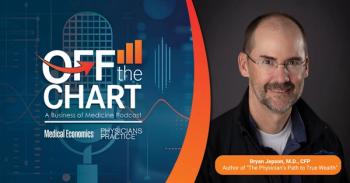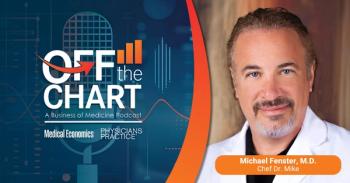
The Black Hole of Burnout
Deborah C. Henry, MD, on how she managed her burnout
It was an early autumn morning and I was on call. I needed to squeeze in an urgent subdural hematoma evacuation before my two scheduled operations, and be ready for an afternoon clinic that I could not cancel. "I hate my job!" I said. The sentence flew out of my mouth as I scrubbed my hands furiously for surgery. My chief, scrubbing in for his case, was too stunned to respond. After all my statement just came out of the blue.
As I stepped into the sterile operating room, I said again "I hate my job." For months I had worked to the point of exhaustion. Frequent call, incessant pages, and an endless backlog of patients had driven me to the breaking point. Yet, I had a difficult time reconciling those feelings with the resident I felt I was, who pulled every-other-night call (and on occasion, every-night call), worked 100-hour workweeks, and brought multi-tasking to an art form. If multitasking were a national competition like the Nathan's Hot Dog eating contest, I would be tough competition. I was invincible.
In one day, it seemed my work stopped being a career, and became a job. Somehow the joy I had experienced in my work crept away silently. Wake up, go to work, come home, work, eat at McDonalds, work, and sleep dreaming of work. Egg McMuffins for breakfast and Quarter Pounders for dinner jockeyed for the mainstay of my diet. Even invincible me had climbed the mountain too fast without appropriate gear and was sucking oxygen. Crying became an everyday experience. Sleeping at night was fraught with 3 a.m. vigils, thoughts racing through my head like a pack of greyhounds chasing a rabbit. Mornings I woke up with tension in my jaw. Yet, I chastised myself. I thought, all around me are poor, hungry, unfortunate people. Who was I to feel sorry for myself? I had a career, a family, a car, a house. But, I needed a break.
I saw my family physician and decided to schedule a leave of absence, to start in three weeks. My patients needed me until then. My physician offered me an antidepressant. I declined. The stigma associated with antidepressants was too great. And I felt this wasn't depression, despite the fact that I felt like I was in a deep dark well with no way to escape. At least in residency, there was always light at the end of the tunnel. As I went through my residency, call became less strenuous, and the rewards of operating greater. I thought, this must be exhaustion, I don't get depressed.
When I told my colleagues I was taking a leave of absence, I was met with mixed opinions. Some were sympathetic and could relate to the physician shortages in their own departments. Some treated me like I had an infectious disease and if they got too close, the virus might attack them as well - leaving them depleted of joy, overwhelmed, and in their own black hole, struggling to escape. I could feel them mentally wash their hands of me.
As serendipity would have it, several months after returning to work, I was sitting in a large auditorium for a required meeting. Christina Maslach, a psychology professor at the University of California, Berkeley, was the guest speaker. Her topic was burnout, based on her books "Burnout: The Cost of Caring" and "The Truth About Burnout: How Organizations Cause Personal Stress and What to Do about It." Throughout her talk, she emphasized six factors that lead to burnout: an unsustainable workload, lack of choice and control, lack of recognition, lack of a sense of community, unfairness, and lack of meaningful work.
There I was, sitting in the dark, watching her PowerPoint presentation flicker across the screen while I mentally checked off each factor that leads to burnout. I wondered, how could I have not known that the flames of burnout had reached a flashpoint for me? I wasn't ill or depressed (though depression was certainly a symptom). I could quit blaming myself for being mentally weak. I had suffered from burnout. Here I was, among doctors, and no one, myself included, had made the correct diagnosis.
Now I can relate better to my patients: Those patients who suffer from lumbar radiculopathies, who after successful surgery wonder if the agonizing pain will return when a twinge of pain zings down their leg. The woman with a previously resected, benign brain tumor, concerned that her recurring headache may mean a returning tumor and another operation. I too am cautious about the pain returning: The pain of feeling overwhelmed to the point that my job becomes a deep dark well from which there is no escape. Never again do I want to experience the agony of that day when my career turned into a job that I hated.
Unfortunately, the problem is much more common than is recognized. It lurks under the foundation of many occupations, from teaching, to nursing, to fire-fighting. It can strike as quickly and as indiscriminately as a car accident. Burnout happened to me, it can happen to you. But I survived. And so will you if you recognize it and treat it.
Deborah C. Henry, MD, is a neurosurgeon who has been practicing for 19 years. She is married to Paul, an orthopedic surgeon. They have one child, a cat, and a dog.
This essay was contributed as part of the October 2010 Physician Writer Search topic "My Best/Worst Day as a Physician."
Newsletter
Optimize your practice with the Physicians Practice newsletter, offering management pearls, leadership tips, and business strategies tailored for practice administrators and physicians of any specialty.




